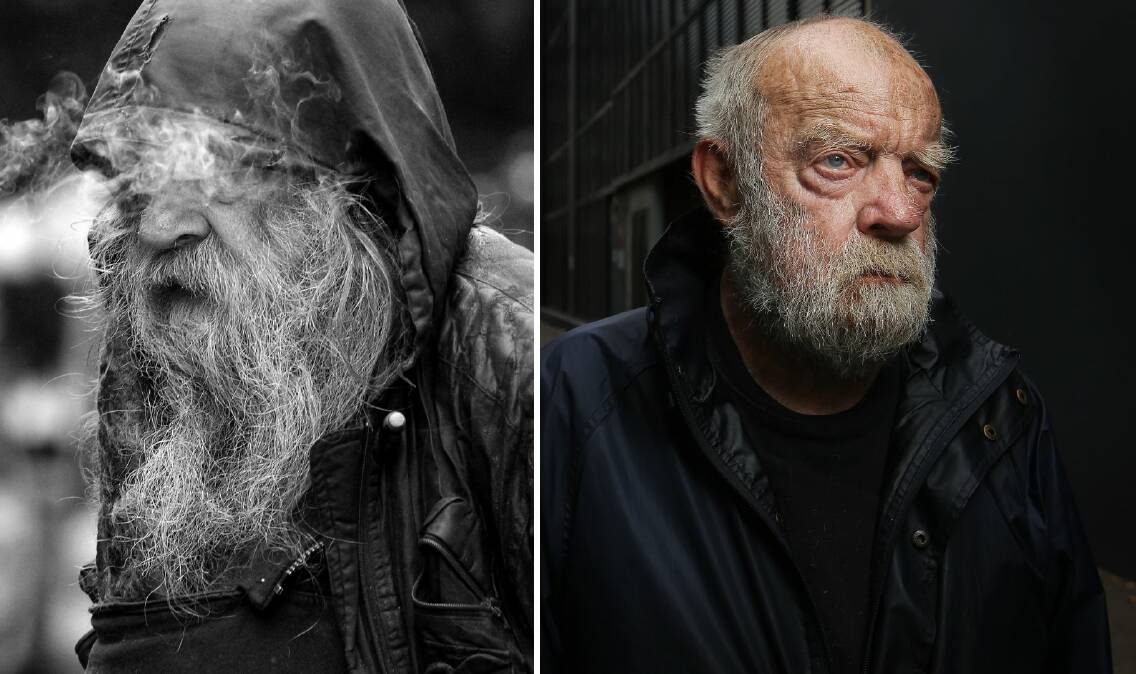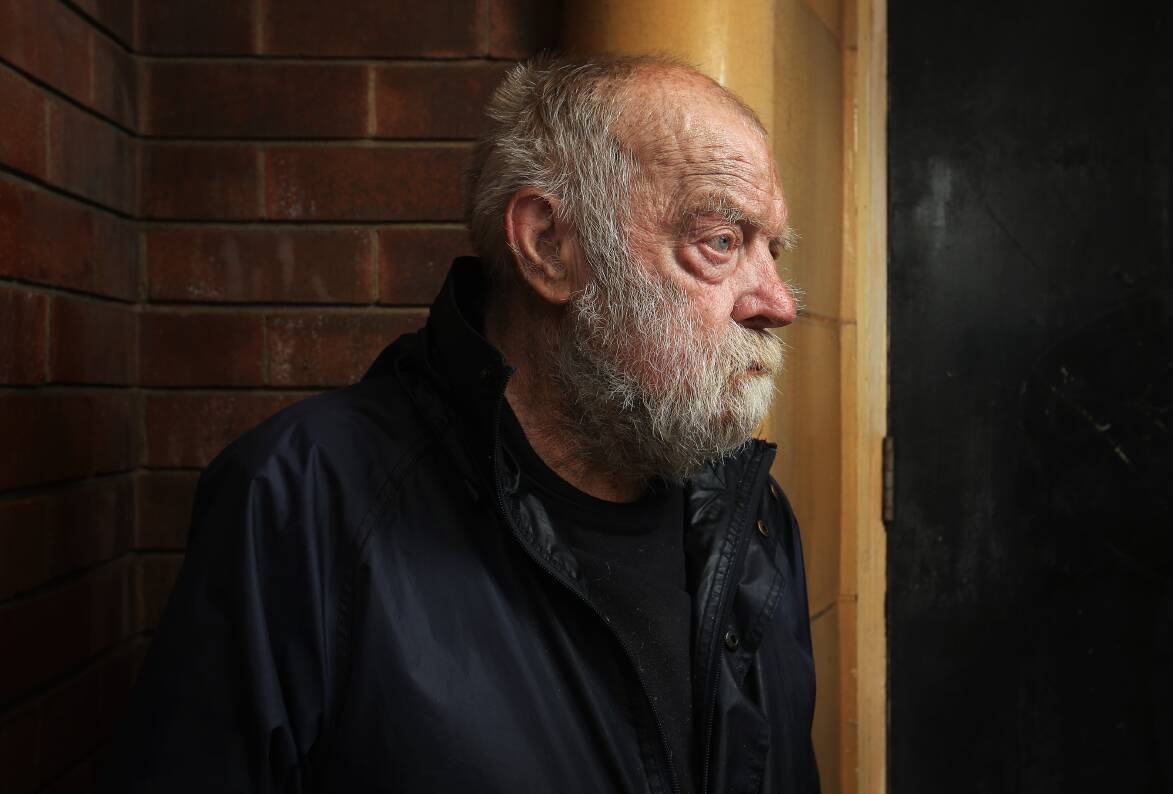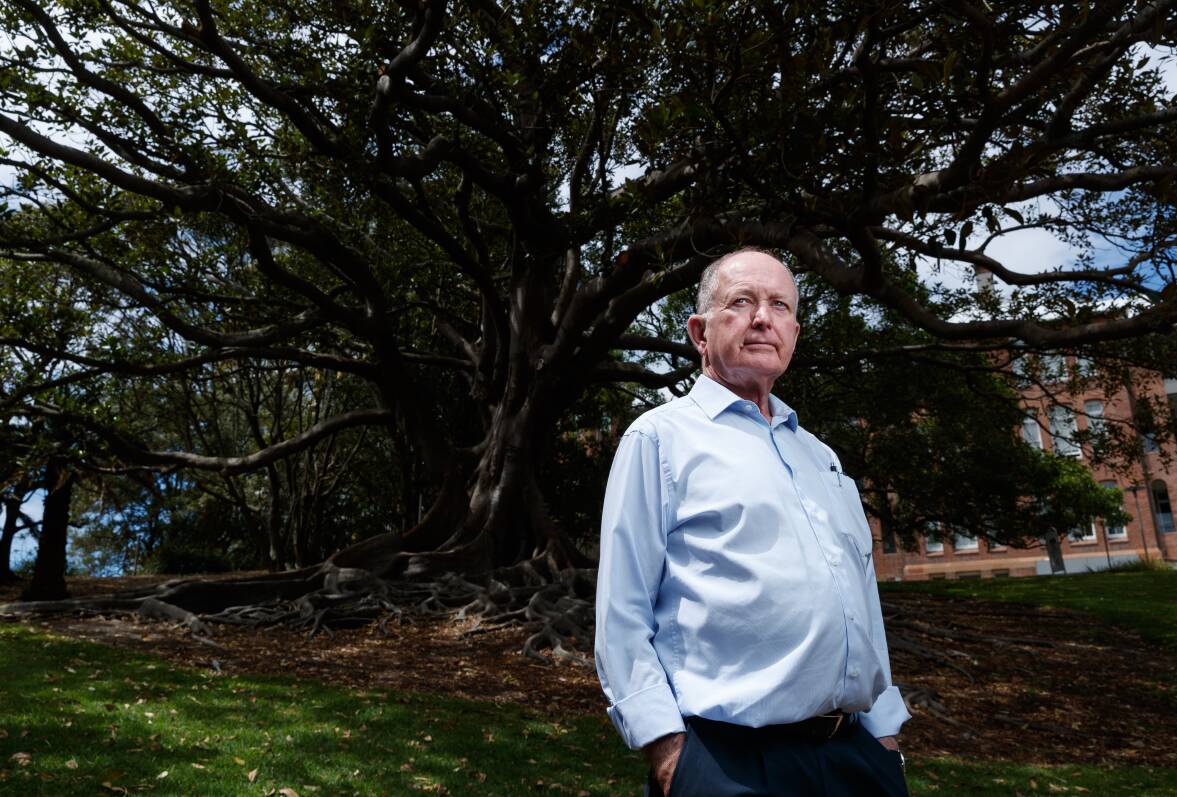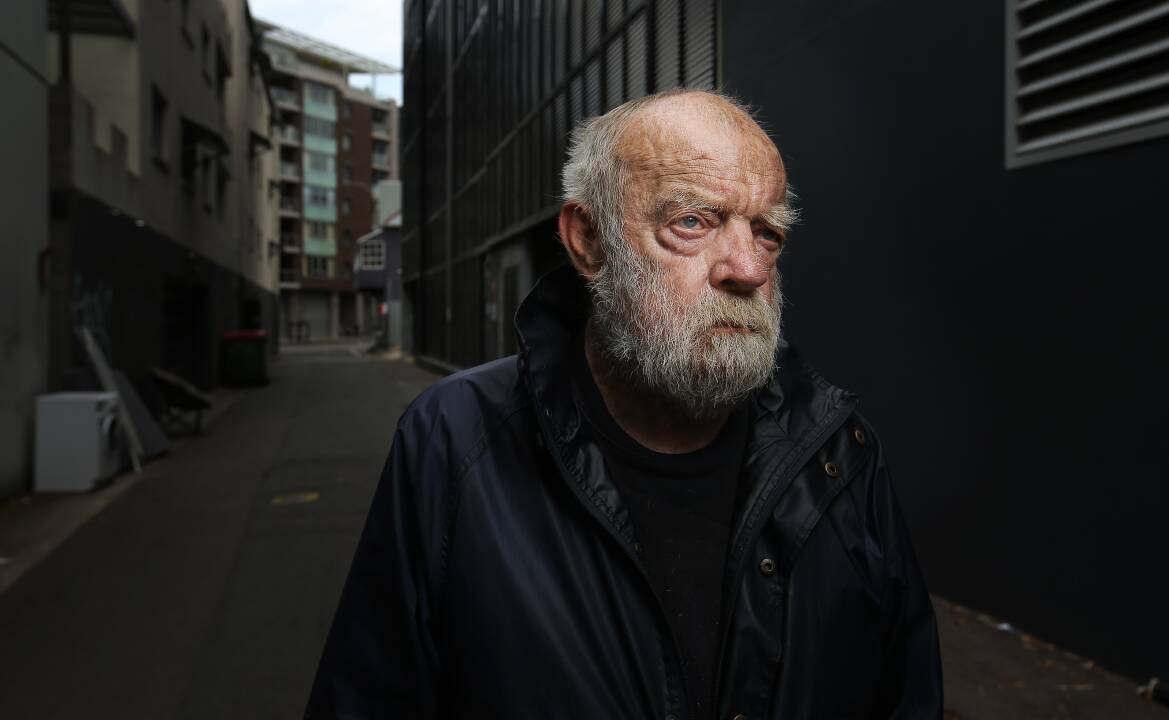
He is known around the streets of inner Newcastle simply as Pete.
For more than three decades, his tattered and meandering presence has been an uncomfortable reminder of the rough underbelly of Australia's largest regional city.
Pete has been spat on, urinated on and left for dead over the years. Yet somehow he has survived.
His mostly non-verbal and anti-social manner has made it difficult for even the most well-meaning souls to engage with him. Among the few who have is City Sleep Safe director John Cross.
In addition to providing him with food and clothing, Mr Cross this year helped Pete obtain a birth certificate and a pension. The process revealed his real name is Alwyn Melville Craig, born in Lithgow in 1948.
Beyond that, little is known, including the circumstances that led to his arrival on the streets of Newcastle. But years of living rough have taken their toll.
In recent times he has been moved on from the arcade where he has been sleeping because of a complaint.
Mr Cross, who now refers to his mate as "Old Pete", recently organised an appointment the Department of Communities and Justices' Assertive Outreach Team to begin the process of applying for a permanent roof over his head. Unfortunately, the interview was terminated due to Pete's refusal to confirm that he is looking for housing.
Mr Cross acknowledges Pete's needs are complex and challenging, but he said he is not prepared to see his 75-year-old friend left on the street in his old age.

"With his brand new pension he can afford to buy cigarettes, before that it was a constant search for cigarette butts on the ground," Mr Cross said.
"His newfound riches must mean a lot to Pete, but what would it mean to Pete and the Newcastle community, to be able to present him with some real accommodation in his patch. His own bed, bathroom, kitchen and postal address?"
Pete spends his days in the area bounded by Hunter, Darby and Wolfe streets.

Mr Cross it was important that accommodation was located close to 'his patch'.
Clinical psychologist and senior lecturer Jessica Mackelprang from Swinburne University's School of Health Sciences agreed Pete would require accommodation close to his familiar surroundings.
"People who experience homelessness for prolonged periods of time often build quite a community wherever they are," she said.
"One of the things that we sometimes see is that people get comfortable even in the most uncomfortable of situations and environments; they build a familiarity with a place and develop a routine there. Often the idea of changing those routines can be quite difficult.
"Accommodation is oftentimes assigned to people when they're experiencing homelessness, which requires them to move away from the people they have a connection to."
She said building trust was essential to helping homeless people engage with social services such as housing.
"Building a trusting relationship is pivotal to enabling Pete to have a sense of safety and hopefully to be able to express what he wants and what his needs are," Dr Mackelprang said.
"Ultimately what Pete may want may not always be what we want for him. It's about figuring out what is the best way to honour and respect the decisions of others even if it is hard to understand why they may be making a particular choice."
Dr Mackelprang said homeless people died on average 20 years earlier than the general population and experienced health issues at a younger age.
"It's quite remarkable that somebody who has been sleeping rough for decades has survived so long. It's probably partly a testament to the fact that he's quite a resilient person who can figure things out, but also the community that he's been living in as well," she said.
Current homeless figures show more older people living rough than previously.

"There are more and more older adults who are experiencing homelessness as the population ages as a whole," Dr Mackelprang said. "Often you see that health conditions that would crop up for a housed adult tend to show up at younger ages for people who are experiencing homelessness."
A NSW Department of Communities and Justice spokeswoman said the Newcastle Outreach Assertive Team had been engaged with and conducted welfare checks with Pete during its outreach patrols.
"Pete has continuously indicated that he does not require assistance," the spokeswoman said. "Newcastle Outreach Assertive Team will continue to engage with Pete and offer him support."
She said anyone who is homeless or at risk of homelessness should call Link2home on 1800 152 152 available 24 hours a day, 7 days a week.







